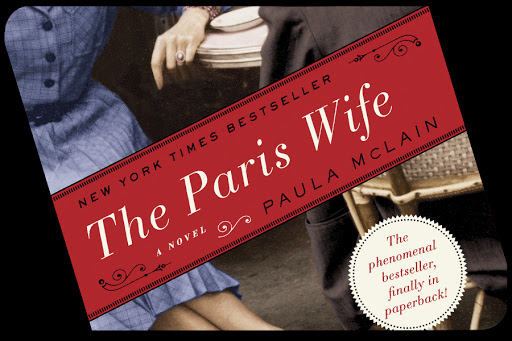Over the last few years, there’s been a surge of interest in Lost Generation writers and artists. I, of course, am a little annoyed by this, as my previously held and possibly unhealthy fascination with that lot now seems to be merely a part of the cultural shift in attention back to the days of flappers, gin fizzes, and desperation. But, I’ll have you know, I owned the book Gatsby Cocktails long before the Baz Luhrmann movie came out, and I was positively stuck on Hemingway’s stark prose—and dark machismo—eons before Woody Allen’s Midnight in Paris. (“Your blood coagulates beautifully.”) But really, I can’t actually be as snobbishly annoyed as I might wish, because this widespread interest means I get company in nerding out, and I get to read and watch the fan fiction and movies that have sprung up around those stories and their authors.
A few months back I was in an airport bookstore. They are, as you well know, horrible places. As I scanned the shelves of trade paperbacks, tried not to be sick all over the harlequin romances and the popular selections for today’s teenagers, I prepared myself to leave with the aloof sense of intellectual and moral superiority that customarily and scantly comforts me in lieu of a good book in such scenarios. But, my preparations were all for naught. Somehow, my eyes got around a slightly corny cover (yes, I do judge by them), complete with “artistic” scroll work, and saw “A beautiful portrait of being in Paris in the glittering 1920s.” ‘Nuff said.
The Paris Wife, by Paula McLain, is a novel about Hadley Richardson, Hemingway’s first wife. It begins with their meeting and subsequent courtship, and follows their story through their years in Paris until their separation. From Hadley’s perspective, we see Hemingway’s emergence as a young novelist, insecure and raging and eager as he rubs shoulders with Gertrude Stein, James Joyce, Ezra Pound, and, of course, the Fitzgeralds. In one of my favorite passages of the book, Hadley is awake, pregnant and hungry in the early morning:
“Waffles,” I said to Ernest’s curled back near dawn. “Wouldn’t that be lovely?”
When he didn’t rouse, I said it again, louder, and put my hand on his back, giving him a friendly little shove.
“Oh, for crying out loud,” he said, rolling out of bed. “It’s gone now.”
“What’s gone?”
He sat on the edge of the thick mattress, scratching one knee. “The right words for the sketch.”
“Oh, sorry then,” I said.
I watched him dress and move toward the kitchen. Within minutes I could hear the coffee boiling and smell it and it made me hungrier. I heard him get his coffee and then heard the chair squeak back as he sat at the table. Silence.
“Tiny?” I said, still in bed. “What do you think about the waffles?”
He groaned and pushed his chair back. “There it all goes again.” (161)
Somehow, Paula McLain manages to write about famous writers without sounding like she’s writing about writers. She’s a good writer on her own merit, and doesn’t skate by merely with writing about people whose lives are already popular. Also, even though Hemingway was an indisputably flawed, oftentimes selfish and arguably morally depraved man, and even though the story is told from the point of a view of the wife whom he cheats on and ultimately leaves, McLain somehow manages to keep him a sympathetic character. Though his faults are blatant, they are nonetheless understandable on some level. And while she paints the characters admirably throughout, makes them real and believable and even lovable, she has also done the research to make her story historically accurate.
Be warned, however, that since most of these characters are artist-y sorts of “liberated” people, there’s a fair bit of promiscuity, some of it less licit than desirable. (See what I did there?!) That being said, none of it seemed gratuitous or written lasciviously or salaciously. So far I’ve lent my copy out to three people. All of them, readers and writers themselves, have loved it. I imagine you will, too.

